Revolutionizing Urban Farming: How Antbox Container is Redefining Sustainable Agriculture
Urban farming is experiencing a transformative shift, driven by innovative technologies and sustainable practices. A pivotal player in this revolution is the Antbox Container, a state-of-the-art solution that utilizes smart design and advanced hydroponic systems to create efficient food production environments. As urban populations surge, the demand for locally sourced, sustainable food options has become increasingly critical; a report from the Food and Agriculture Organization projects that by 2050, urban areas will host nearly 68% of the global population, amplifying the need for innovative agricultural solutions. The Antbox Container addresses this challenge head-on, offering an eco-friendly alternative that minimizes land use while maximizing crop yields. With the global vertical farming market expected to reach $12.77 billion by 2027, this groundbreaking approach not only ensures food security but also promotes environmental sustainability. As we delve deeper into the functionalities and benefits of the Antbox Container, we uncover its potential to redefine urban agriculture for a sustainable future.
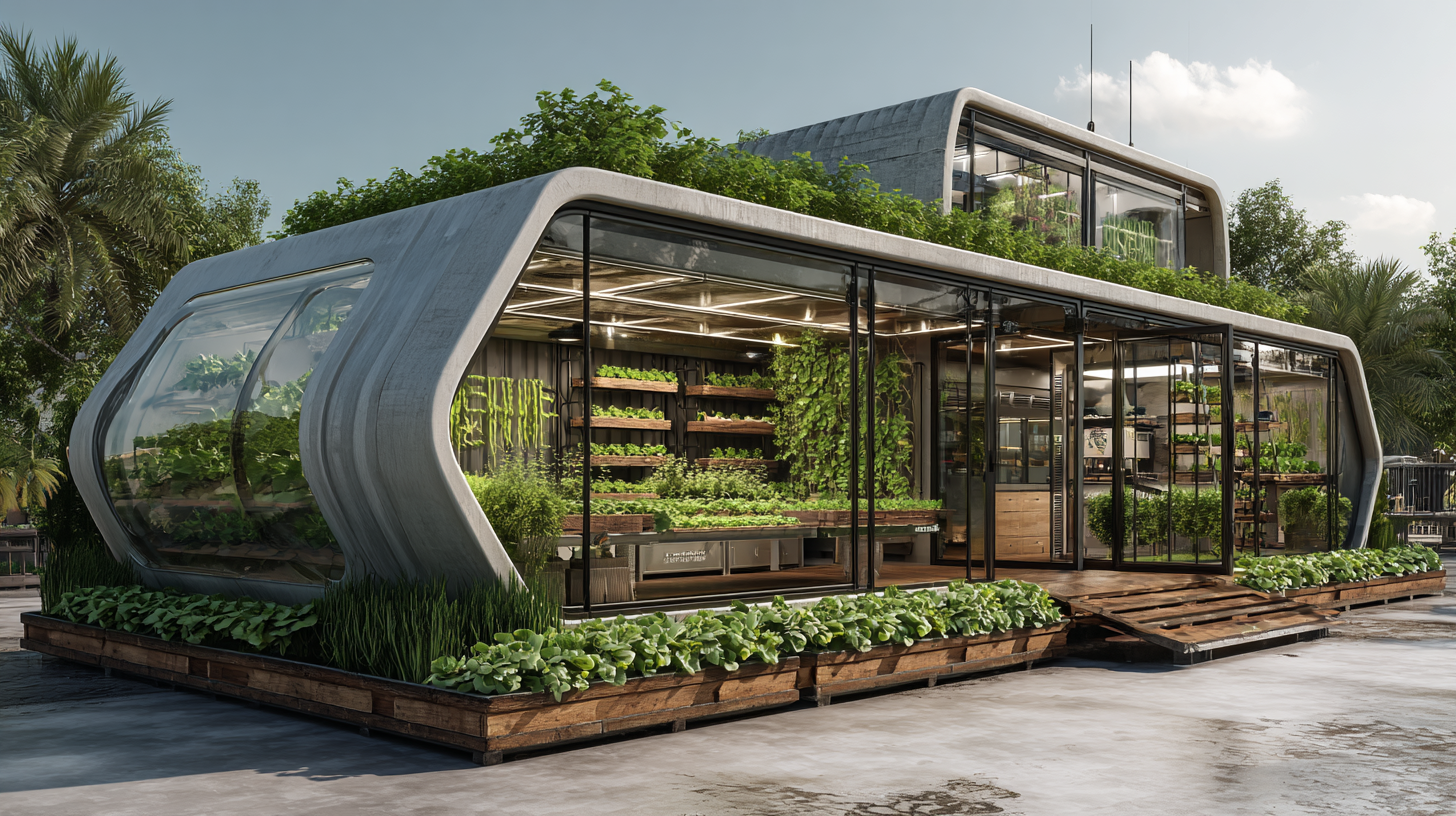
Innovative Design: The Features of Antbox Containers for Urban Farming
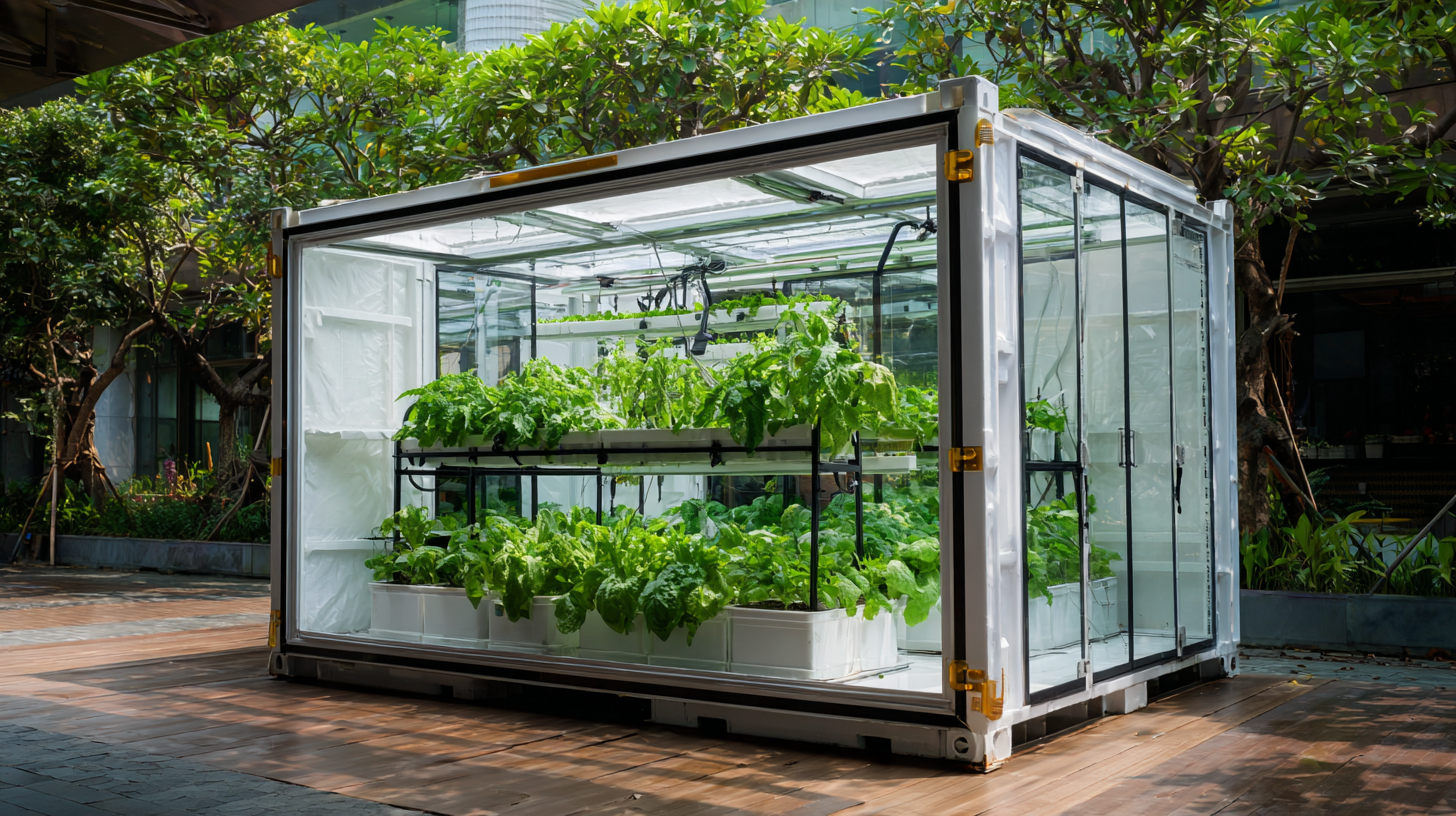 The Antbox Container is at the forefront of sustainable urban farming, revolutionizing food production in metropolitan areas. Designed with innovative features that cater specifically to urban environments, these containers provide a perfect solution for growing fresh produce in limited spaces. According to a report by the Food and Agriculture Organization (FAO), urban agriculture can reduce the carbon footprint of food by up to 50% by minimizing transportation distances, making solutions like the Antbox increasingly vital.
The Antbox Container is at the forefront of sustainable urban farming, revolutionizing food production in metropolitan areas. Designed with innovative features that cater specifically to urban environments, these containers provide a perfect solution for growing fresh produce in limited spaces. According to a report by the Food and Agriculture Organization (FAO), urban agriculture can reduce the carbon footprint of food by up to 50% by minimizing transportation distances, making solutions like the Antbox increasingly vital.
One of the standout features of the Antbox Containers is their modular design, which allows for easy scalability and customization. Each unit can be equipped with hydroponic systems, LED grow lights, and automated climate control, optimizing conditions for plant growth. Research from the National Sustainable Agriculture Coalition indicates that urban farming can yield up to 10 times more food than traditional farming on the same area, showcasing the efficiency of such systems. Additionally, the integration of smart technology enables growers to monitor conditions remotely, ensuring the health and quality of plants, which is crucial in densely populated areas where access to fresh food is often limited.
Sustainability in Practice: Eco-Friendly Practices in Antbox Container Agriculture
Urban farming is experiencing a transformative shift with the introduction of innovative solutions like the Antbox container. This mobile farming unit is designed to make sustainable agriculture accessible and practical, addressing the growing need for eco-friendly food production within urban landscapes. The Antbox focuses on reducing environmental impact by utilizing smart technologies and efficient space management, allowing cities to grow fresh produce in a compact, controlled environment.
The eco-friendly practices embedded in Antbox agriculture include the use of renewable energy sources and water-saving irrigation systems. By integrating these sustainable techniques, Antbox not only minimizes waste but also enhances food security in densely populated areas. This approach empowers urban dwellers to engage with sustainable farming methods, contributing to a greener future while ensuring that fresh, healthy food is readily available. In doing so, it sets a new standard for urban agriculture that prioritizes environmental stewardship and community well-being.
Revolutionizing Urban Farming: Sustainable Agriculture with Antbox Container
| Dimension | Metric | Value |
|---|---|---|
| Cultivation Area | Square Feet | 320 |
| Yield per Harvest | Pounds | 80 |
| Water Usage | Gallons per Month | 100 |
| Energy Consumption | Kilowatt-hours per Month | 150 |
| Carbon Footprint Reduction | Tons per Year | 3.5 |
| Biodiversity | Number of Species Cultivated | 15 |
| Community Engagement | Workshops Held | 12 |
Urban Integration: Antbox's Role in Revitalizing City Spaces
Urban spaces are witnessing a transformative shift with the introduction of Antbox, a revolutionary container farming solution that blends agriculture seamlessly into city life. By repurposing unused urban areas, Antbox not only optimizes space but also enhances the aesthetic value of cities, integrating greenery into concrete landscapes. This innovation encourages community engagement by promoting local food production, which can significantly reduce the carbon footprint associated with transporting food from rural areas to urban centers.
Antbox serves as a catalyst for revitalizing neighborhoods, transforming rooftops and vacant lots into thriving ecosystems. The modular design allows for customizable setups that cater to various urban environments, making it an adaptable solution for city planners and residents alike. As cities strive for sustainability, Antbox provides an accessible platform for urban agriculture, fostering a sense of community while addressing food insecurity. With its impactful presence, Antbox is redefining how city dwellers perceive and interact with their surroundings, paving the way for a greener urban future.
Technology Meets Agriculture: Smart Solutions for Efficient Farming
Urban farming is experiencing a significant transformation, largely driven by innovative technologies like the Antbox container. These smart farming solutions are tailored to maximize efficiency, utilizing data-driven methods to optimize crop yields in limited spaces. According to a report by ResearchAndMarkets, the global urban farming market is projected to reach $200 billion by 2025, indicating a massive shift towards sustainable and localized food production.
The integration of smart technology enables urban farmers to monitor plant health, manage resources effectively, and forecast yields with precision. A study published in the Journal of Agricultural Studies highlights that urban farms leveraging IoT devices can reduce water consumption by up to 90%, while also increasing productivity by 20-30%. Antbox containers are at the forefront of this revolution, providing modular, scalable solutions that not only enhance the efficiency of urban agriculture but also promote sustainable practices that align with growing environmental concerns. As cities continue to grapple with food security issues, these smart agricultural innovations are not just trends; they are essential tools for revitalizing urban landscapes and ensuring a sustainable future.
Crop Yield Comparison in Urban Farming Techniques
Community Engagement: How Antbox Encourages Local Participation in Food Production
Urban farming is witnessing a transformative shift with the emergence of innovations like Antbox containers, which not only optimize space for food production but also foster community engagement. According to a report by the National Gardening Association, participation in community gardening has increased by 200% over the past five years, highlighting the growing interest in local food production. Antbox leverages this trend by creating modular, easily accessible systems that invite residents to take part, turning passive consumers into active contributors.
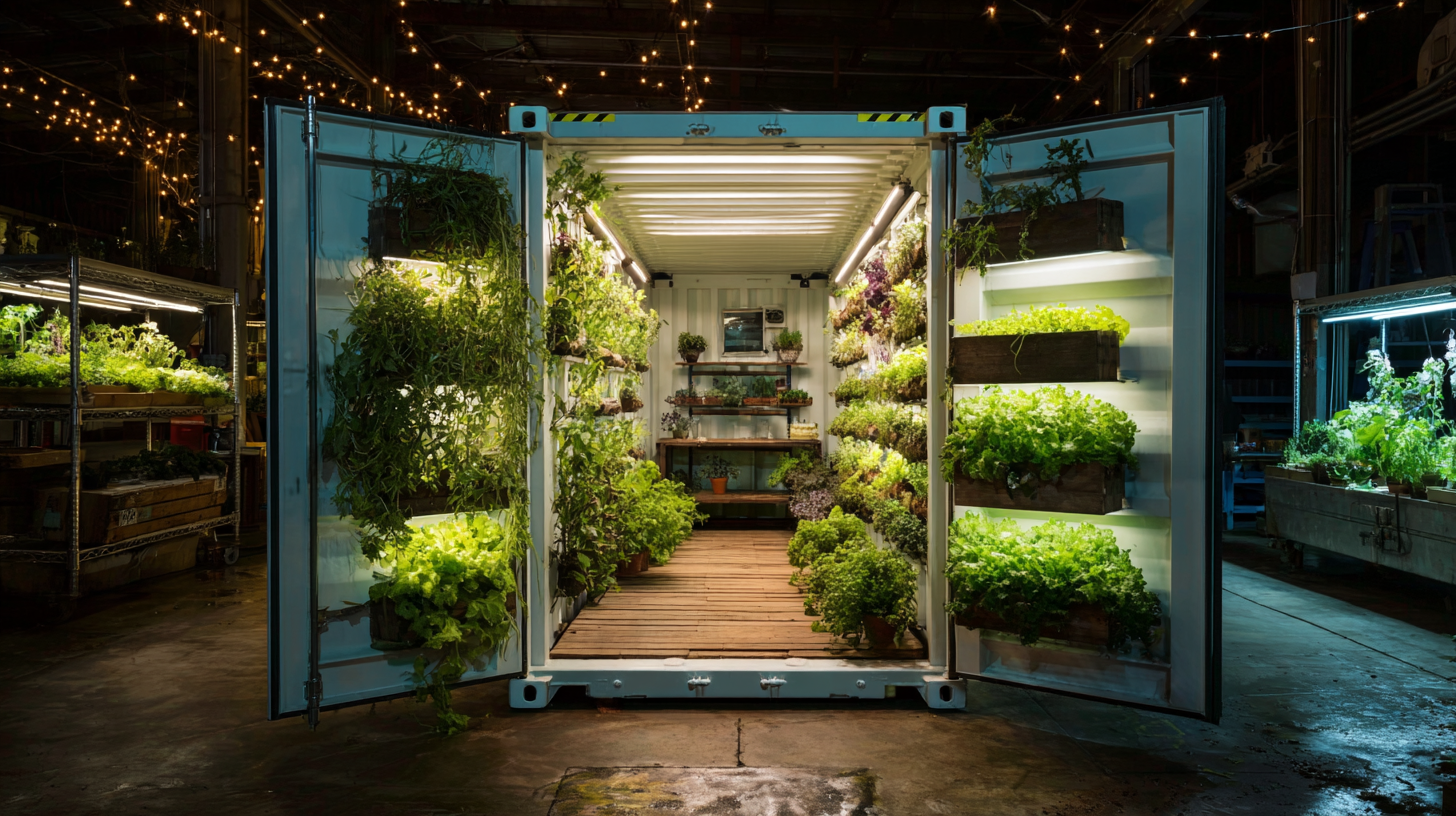
Related Posts
-
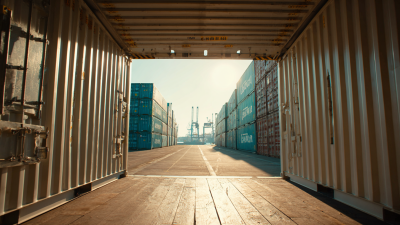
Exploring the Benefits of Antbox Containers for Sustainable Shipping Solutions
-

10 Reasons Why Antbox Container is the Best Choice for Your Business
-
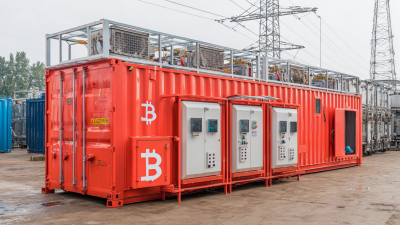
How to Optimize Your Bitcoin Mining Container for Maximum Efficiency
-
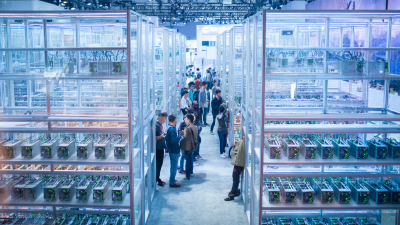
Exploring Asic Mining Innovations at the 138th China Import and Export Fair 2025
-

Exploring the Future of Bitcoin Containers: Secure Your Cryptocurrency in a Digital Vault
-
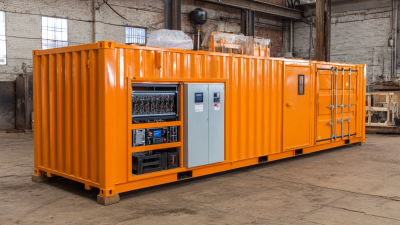
What is a Portable Bitcoin Mining Container and Why You Should Consider One
